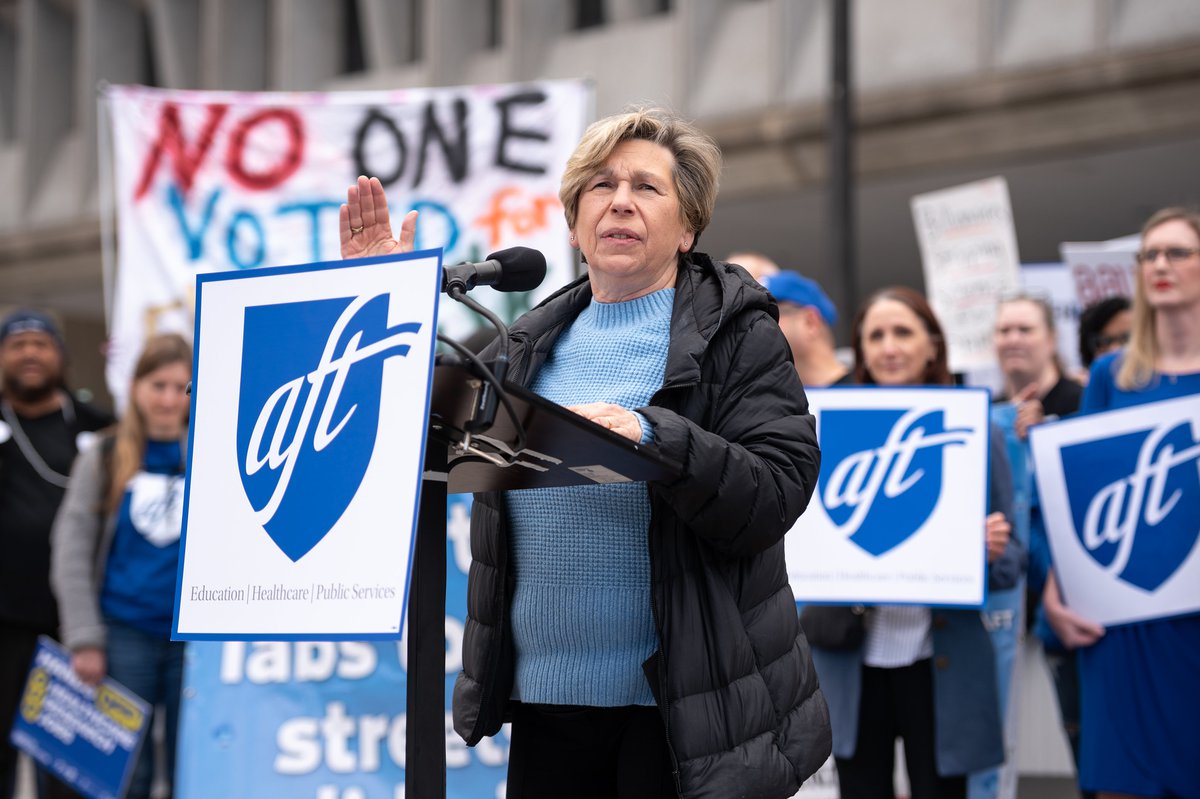In a time of increasing political polarization, few figures in education evoke as much debate as Randi Weingarten, the president of the American Federation of Teachers (AFT). Her recent book, Why Fascists Fear Teachers: Public Education and the Future of Democracy, has ignited conversations about the role of educators in safeguarding democracy. This article delves into Weingarten’s perspectives, the challenges facing public education, and the strategies for countering authoritarianism, based on her interview with The Progressive. Weingarten’s insights provide a crucial lens through which to view the ongoing battles over curriculum, school policies, and the very future of public education.
The Looming Fascist Threat to Education
Randi Weingarten argues that attacks on teachers and public education are hallmarks of authoritarian regimes. Drawing parallels to historical events, she notes that fascist governments, from Hitler’s Germany to Iran’s Cultural Revolution, have sought to control education by persecuting teachers and restricting academic freedom. Weingarten believes that these attacks are rooted in a fear of critical thinking and the promotion of diversity and inclusion, which are essential components of a robust democracy. Her book aims to empower readers by providing an honest assessment of the current challenges and their historical context.
“Those hell-bent on unraveling democracy, pluralism, and opportunity have always attacked teachers and education,” Weingarten writes.
She advocates for emancipatory education that brings diverse groups together to explore subjects like history, culture, and science, and emphasizes the importance of trade unions in building collective power.
The Roots of Anti-Public-School Backlash
Weingarten traces the origins of today’s anti-public-school sentiment back to the 1954 Brown v. Board of Education decision. This landmark ruling, which mandated the desegregation of schools, triggered a white backlash, leading to the creation of private schools designed to avoid integrated classrooms. She contends that the modern universal voucher movement is a direct result of this fear and the desire to use government funds for racially segregated schools. By addressing race and sexuality, Weingarten aims to expose the underlying motivations of those who seek to undermine public education.
The Spread of Misinformation During COVID-19
The COVID-19 pandemic exacerbated existing anxieties and created new challenges for public education. School closures led to a surge in misinformation, with social media playing a significant role in spreading false narratives. Weingarten points out that the lack of regulation on social media, combined with people’s need for quick information, allowed these narratives to gain traction. The absence of a strong counter-narrative from figures like the then-Secretary of Education further fueled the flames. However, she notes that once schools reopened, the falsehoods about critical race theory and gender surgeries were exposed, leading to a shift in public perception.
The Intentional Strategy to Undermine Public Education
Weingarten highlights that the undermining of public education is an intentional strategy employed by the right wing, who favor school privatization. She emphasizes that promoting falsehoods about schools is a form of fascist behavior, designed to create division and distrust. By exposing this strategy, Weingarten hopes to inform readers that the opposition to pluralism and critical thinking is a deliberate attempt to erode public education.
The Crucial Role of Critical Thinking in Education
Teachers play a vital role in promoting critical thinking and problem-solving skills, enabling students to think for themselves. Weingarten stresses that classrooms should be safe spaces where children can build relationships, which is essential for countering fear and anxiety. By fostering critical thinking, teachers equip students with the tools they need to navigate complex issues and contribute to a democratic society.
Unions as Champions of Diversity and Pluralism
Unions have historically championed diversity and pluralism, with the AFT being the only union to file an amicus brief in Brown v. Board of Education. Weingarten notes that unions have been at the forefront of efforts to uphold democracy and fight against fascism. She highlights the AFT’s involvement in various initiatives, such as citizenship clinics for immigrants and partnerships with organizations like the NAACP to distribute children’s books to underserved communities. These efforts demonstrate the commitment of teachers and union members to creating opportunities for all.
Conclusion: Teachers as Defenders of Democracy
Randi Weingarten’s insights underscore the critical role that teachers and public education play in defending democracy against authoritarianism. By promoting critical thinking, creating safe and welcoming communities, and organizing strong unions, teachers empower students and workers to create power and opportunity for themselves. Weingarten’s book, Why Fascists Fear Teachers, serves as both a warning and a call to action, urging readers to recognize the threats to public education and to actively work to strengthen it. As Weingarten concludes, fascists attack teachers not because of what they do wrong, but because of everything they do right.

Leave a Reply